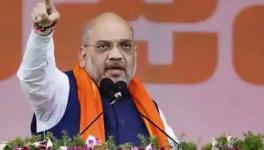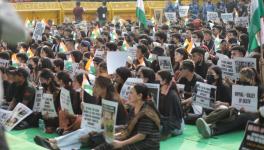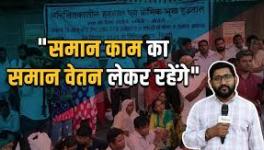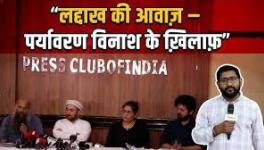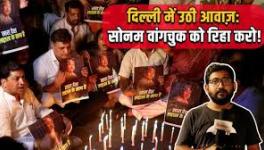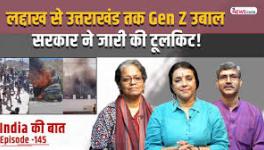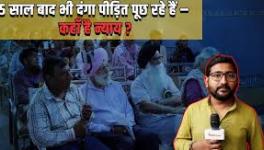India’s Undeclared Emergency: Often More Chilling than in 1975
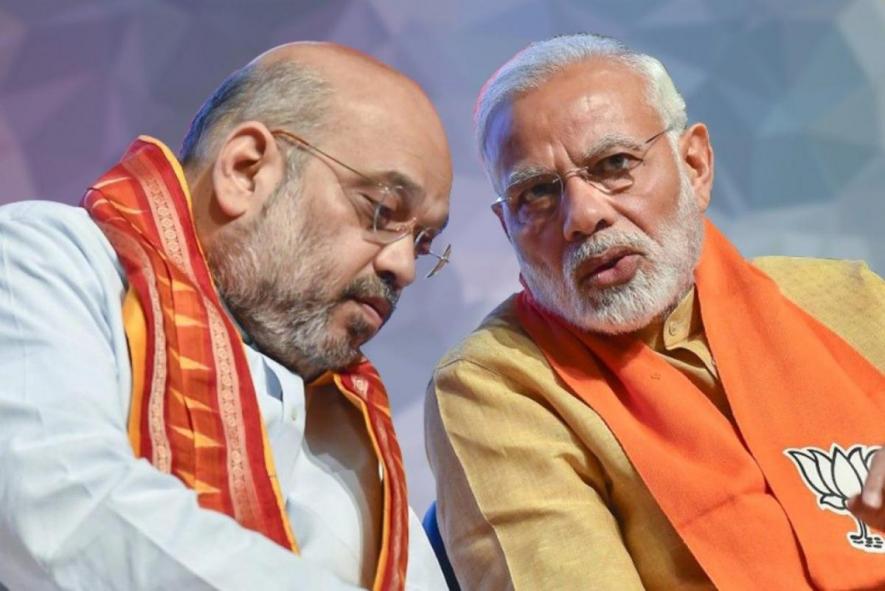
The Emergency was a dark and shameful chapter in Indian democracy—a nightmare, a wretched period! It is 46 years since the then prime minister Indira Gandhi imposed the Emergency to protect her power, turning the entire country into a prison. Opposition party leaders and workers were jailed, newspapers strangled by censorship, Parliament, Judiciary, Executive etc., turned into Indira Gandhi’s “kitchen”, and she and her son Sanjay were its resident cooks.
Leaders of the ruling party, including government ministers, were reduced to orderlies of the mother-and-son. In the elections held after 21 months, people peacefully revolted through their franchise against this dictatorship, freeing the country from the curse of the Emergency.
After the Emergency, the Janata Party government formed by the merger of five parties may have achieved nothing remarkable, but one thing it did succeed in. By resorting to constitutional provisions, it made imposing dictatorship on the country again very difficult. It was the primary duty of that government, and it faithfully performed it.
However, it does not mean that democratic values and civil rights can only get hijacked through a formal declaration. Rules and regulations can also become the perfect cover for revocation of democracy, as is happening continuously for the last seven years, in a horrific way. A close look at our political and constitutional institutions and their conduct today would reveal that the country is passing through a phase worse than the Emergency.
Indira Gandhi imposed the Emergency with the help of constitutional provisions, but all that happened during the Emergency is still taking place—and much worse—without a formal declaration. The difference is that everything done during the Emergency was in the name of discipline, while today, development and nationalism are the mantras. The tendencies that have strengthened within the Bharatiya Janata Party after the Atal-Advani era have nothing to do with democratic values. All the powers of government and party not confined to a single group but a single person. Remember that the BJP now rules at the Centre and several states.
Wherever Prime Minister Narendra Modi goes, a pre-arranged group of ardent “supporters” shout “Modi-Modi” as if he were a rock star. Modi appears pleased by this. Astonishingly, a smile appears on his face when people applaud the strange information he shares about history and science.
Crossing the limits of flattery and political hypocrisy, during the Emergency, the then Congress president Devkant Barua raised the slogan, “Indira is India, India is Indira”. Today, the BJP has many such leaders, from Ravi Shankar Prasad, Shivraj Singh Chouhan and Devendra Fadnavis, to workers at the lowest levels who unhesitatingly describe Modi as the embodiment of divine power or possessing superhuman abilities. It is Venkaiah Naidu, the Vice President, who started this trend. Last year, BJP president JP Nadda set a new example of political flattery when he said Modi is the leader of the gods, too.
Not a single institution can be called a watchdog of democracy today. Not one institution commits to democratic values beyond question. Today, again, government ministers are heard advising the courts on how to decide cases. The courts have also ruled in accordance with the intentions of the government. Supreme Court and High Court judges praise ruling-party leaders on public forums; their especially flattering praise reserved for Prime Minister Modi.
Overall, the judiciary has become practically committed to the government. The credibility of the Election Commission is destroyed, and, in a way, it has transformed into an election ministry. Election programmes are drawn keeping in mind the convenience of the Prime Minister and his party. During the last seven years, we have seen instances of the electoral mandate getting distorted with the help of defectors and state governors, such as in Goa, Manipur, Bihar, Madhya Pradesh, Karnataka, Arunachal Pradesh, Meghalaya etc. Horse-trading of Opposition MLAs is a common practice as the ruling party strives to win as many seats as possible in the Rajya Sabha elections. The bureaucracy is no longer accountable to the people or the Constitution. Barring a few exceptions, it is entirely in the hands of the ruling party.
The Right to Information Act has been made virtually ineffective. Agencies such as the CBI, Income Tax Department and Enforcement Directorate have become tools to harass Opposition leaders and social activists, writers and intellectuals who disagree with the government. In this work also, the judiciary remains an indirect assistant to the government.
The condition of the media, which is called the fourth pillar of democracy, is also worrying. Today, journalism is not the same as it was after the Emergency. The main reason is the entry of big corporate houses into the sector and the competition among media groups to make profits. Profiteering has made media institutions completely anti-people and backers of the government.
The media is being manipulated by the government in two ways—through advertisements or by showing it the fear of government agencies. Due to all this, the distinction between government and non-government media has almost ended. Not only is the media’s aggressiveness and impartiality hampered by commercial considerations, its commitment to professional, ethical and democratic values and civil rights is also eroded.
A new and dangerous trend of the last five-six years is the excessive glorification of the army by the government, the ruling party and the media. Indeed, our armed forces often deal with challenges, so they should be respected. But to consider them beyond any questioning and the military leadership engaging in political rhetoric amount to stepping towards militaristic nationalism.
The Emergency was not a sudden event but a result of the ever-increasing tendency of hypercentralisation of power, autocracy, hero-worshipping and sycophancy. Today, again, the same scenes are visible. Important decisions no longer account for the general opinion of Parliament or even the Union Council of Ministers. Only--only--the Prime Minister and his chief warlord, i.e. Home Minister Amit Shah, run the show. The role of Sanjay Gandhi and his quartet during the Emergency was an example of extra-constitutional interference in the operation of power. Today, the Rashtriya Swayamsevak Sangh plays that role. Parliament has been made almost irrelevant.
Governments openly disregard the occasional public interest orders of the judiciary. Ruthless efforts to silence dissenters or drown them in fake patriotism are visible. During and before the Emergency, those who spoke against the government were called “agents of America” or the CIA. Now, every person who disagrees with the government is labelled pro-Pakistan or anti-national.
In the Emergency, the nation got Indira Gandhi’s Twenty-Point and Sanjay Gandhi’s Five-Point programs. Today, the Hindutva agenda is being rapidly implemented under the cover of development and cultural nationalism. Under this agenda, minorities, Dalits and tribals are harassed in many ways. On the whole, a formally democratic system had taken over after the Emergency, but now a rapid erosion of democratic institutions, customs and beliefs is taking place. Civil rights are secretly being nibbled on, and at an unprecedented rate.
The Covid-19 epidemic is also a ruse for the government to continuously take arbitrary decisions, ignore Parliament and the Constitution and deprive people of their rights. In the name of controlling the virus, the country stands converted into a police state of lockdowns, curfews and deprivations. Privacy and civil liberties have been hijacked. In most cases, the judiciary is either a mute spectator or, after the slightest pretence of interference, starts singing in the voice of the government.
During the Emergency, the Congress party ruled almost all the states and the Center. Despite this, the Opposition was not as weak as now. Opposition parties had a connection with the people, and Opposition leaders had credibility. Therefore, the government put all Opposition leaders and activists in jails under stringent laws like the Maintenance of Internal Security Act (MISA). The BJP is in power in more than half the states alone or with its allies and it is ruling at the Center. Still, the strength of the country’s largest opposition party, the Congress, is only continuously eroding. It is a victim of weak willpower and leadership crisis. The Congress was in power so long that the rites of struggle could never flourish in it. Not only is its relationship with street-level activism broken, but it also is unable to play the role of an effective Opposition in Parliament. The condition of other Opposition parties is no better. This dire situation is also instrumental in the government becoming autocratic.
However, now it is not as easy to impose the Emergency on the country as it was 46 years ago. To suspend the Fundamental Rights of citizens in the name of an internal crisis requires a two-thirds majority in the Legislative Assemblies of two-thirds of states, other than Parliament. Yet, we must not forget the apprehensions expressed by senior BJP leader LK Advani on the 40th anniversary of the Emergency, a year after Modi became the Prime Minister. In an interview with The Indian Express newspaper, Advani had cautioned that the forces capable of crushing democracy are more powerful today than ever. According to him, “If the Emergency could happen with so many of us being there [who were opposed to it], I don’t rule it out totally in the future. I don’t think the last word on this has been said. Of course, no one can do it easily, because of the experience we have had in 1975-77. But that it cannot happen again—I will not say that. It could be that fundamental liberties are curtailed again...”
Advani said this six years ago, but it is palpably more relevant today than in 2015. The country is in a worse and more frightening phase than the Emergency.
(The author is a senior freelance journalist. The views are personal.)
Get the latest reports & analysis with people's perspective on Protests, movements & deep analytical videos, discussions of the current affairs in your Telegram app. Subscribe to NewsClick's Telegram channel & get Real-Time updates on stories, as they get published on our website.












